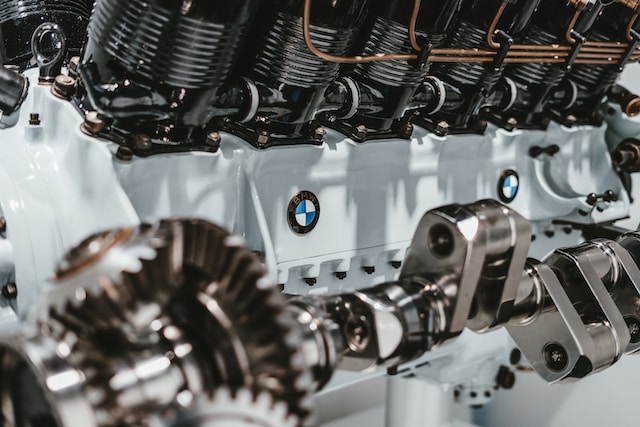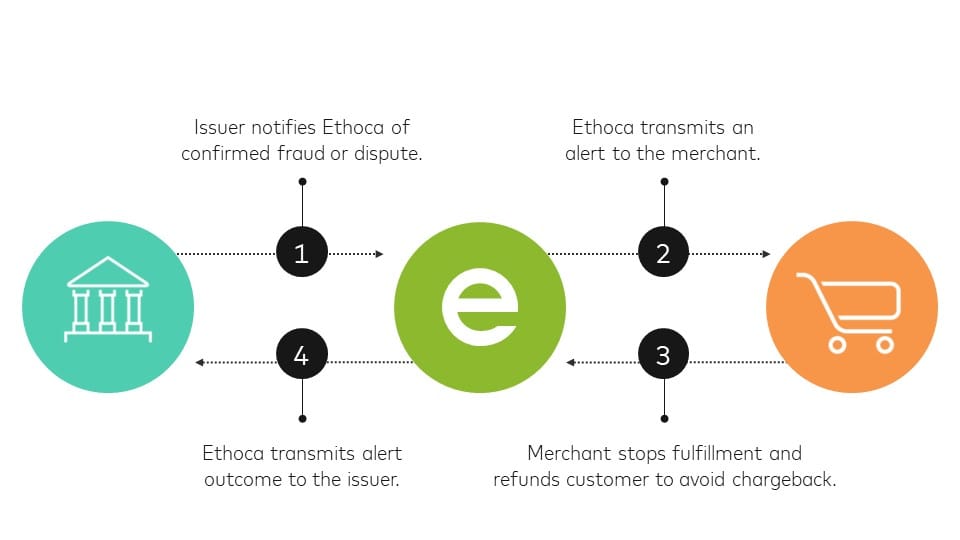
SuperPay helps automotive repair professionals like yourself get paid as quickly as possible. Choose our platform to power your payments & billing.
Welcome to our blog post on certifications for automotive repair shops! In today's fast-paced and ever-evolving automotive industry, it is crucial for repair shops to stay ahead of the game. One way to do this is by obtaining certifications that validate their expertise and commitment to excellence.
Certifications for automotive repair shops come in various forms and are offered by reputable organizations such as ASE, AAA, I-CAR, and manufacturers themselves. These certifications serve as a testament to the skills, knowledge, and professionalism of the shop and its technicians.
In this blog post, we will explore the different types of certifications available for automotive repair shops, including ASE Certification, AAA Approved Auto Repair (AAR), I-CAR Gold Class Professionals, and manufacturer-specific certifications. We will delve into the eligibility criteria, application process, examination and training requirements, as well as the recertification process.
But why should you invest time and effort into obtaining certifications for your automotive repair shop? The benefits are numerous. Firstly, certifications enhance your shop's credibility and instill trust in customers, leading to increased business and customer satisfaction. Secondly, they provide a competitive advantage in a crowded market, helping you stand out from the competition. Additionally, certifications grant access to the latest industry knowledge and technologies, keeping your shop up-to-date with advancements in automotive repair.
Obtaining certifications is just the beginning; maintaining them is equally important. We will discuss the importance of continuing education, periodic recertification, and adherence to standards and guidelines to ensure your shop retains its certified status.
Whether you are a seasoned shop owner or considering starting your own automotive repair business, this blog post will provide you with valuable insights into the world of certifications for automotive repair shops. So, let's dive in and explore how certifications can elevate your shop's reputation, customer satisfaction, and overall success in the industry.
The Importance of Certification for Automotive Repair Shops
Certifications play a crucial role in the automotive repair industry, serving as a mark of excellence and a testament to the skills and knowledge of the repair shop and its technicians. Let's explore the importance of certifications for automotive repair shops in more detail:
1. Ensuring Quality Workmanship
Certifications are a way for repair shops to demonstrate their commitment to providing high-quality workmanship. By obtaining certifications, shops are required to meet certain standards and adhere to specific guidelines. This ensures that customers can trust that their vehicles are being repaired by trained professionals who have the necessary skills and knowledge to perform the job correctly.
2. Building Trust and Credibility
Certifications provide a level of assurance to customers that the repair shop is reputable and trustworthy. When customers see certifications displayed in the shop or on the website, it gives them confidence that the shop has met certain industry standards and has undergone rigorous training and testing. This helps to build trust and credibility with customers, leading to increased customer satisfaction and loyalty.
3. Enhancing Customer Satisfaction
Certifications not only demonstrate technical competence but also show a commitment to customer satisfaction. By obtaining certifications, repair shops are signaling their dedication to providing excellent service and ensuring customer needs are met. This can include factors such as timely repairs, transparent communication, fair pricing, and overall professionalism. When customers feel confident in the expertise and professionalism of the repair shop, they are more likely to be satisfied with the service provided.
4. Keeping Up with Industry Advancements
The automotive industry is constantly evolving, with new technologies, techniques, and best practices emerging regularly. Certifications require shops and technicians to stay up-to-date with these advancements through ongoing training and education. This ensures that certified repair shops are equipped with the latest knowledge and skills needed to handle modern vehicles and effectively diagnose and repair complex issues. By staying current with industry advancements, repair shops can deliver more accurate and efficient repairs, benefiting both the shop and its customers.
5. Meeting Insurance and Warranty Requirements
Insurance companies and vehicle manufacturers often have specific requirements for repairs to be covered under warranties or insurance policies. Many of these requirements include using certified repair shops or technicians. By obtaining certifications, repair shops can meet these requirements, ensuring that repairs are covered and warranties remain valid. This is not only beneficial for customers but also for the repair shop, as it can lead to increased business and partnerships with insurance companies and manufacturers.
In conclusion, certifications for automotive repair shops are vital for ensuring quality workmanship, building trust and credibility with customers, enhancing customer satisfaction, keeping up with industry advancements, and meeting insurance and warranty requirements. By obtaining certifications, repair shops can separate themselves from the competition, attract more customers, and provide exceptional service that meets the highest industry standards.
Types of Certifications for Automotive Repair Shops
There are several types of certifications available for automotive repair shops, each with its own set of requirements and benefits. Let's explore the different types of certifications in more detail:
1. ASE Certification
The National Institute for Automotive Service Excellence (ASE) offers a comprehensive certification program for automotive repair professionals. ASE certifications cover a wide range of automotive repair areas, including engine repair, brakes, electrical systems, suspension and steering, heating and air conditioning, and more. ASE certifications are highly respected in the industry and demonstrate a technician's expertise and competency.
2. AAA Approved Auto Repair (AAR)
AAA has its own certification program known as Approved Auto Repair (AAR). To become AAA Approved, repair shops must meet stringent criteria for technician certifications, proper tooling and equipment, customer satisfaction, and overall business practices. AAA's certification provides customers with confidence that the repair shop meets AAA's high standards for quality and service.
3. I-CAR Gold Class Professionals
I-CAR is an organization dedicated to training professionals in the collision repair industry. Their Gold Class Professionals certification is designed for shops that excel in training and have a commitment to ongoing education. To achieve Gold Class status, repair shops must meet specific training requirements and demonstrate a high level of expertise in collision repair.
4. Manufacturer-Specific Certifications
Many vehicle manufacturers offer their own certification programs for repair shops that specialize in their particular brand. These certifications ensure that repair shops have the necessary training and equipment to properly repair and service vehicles of that specific brand. Examples of manufacturer-specific certifications include BMW Certified Collision Repair Centers, Honda ProFirst Certified Shops, and Mercedes-Benz Certified Collision Centers.
5. Other Specialty Certifications
In addition to the aforementioned certifications, there are various other specialty certifications available for automotive repair shops. These certifications focus on specific areas of expertise, such as hybrid or electric vehicle repairs, air conditioning system repairs, diesel engine repairs, and more. These specialty certifications allow repair shops to demonstrate their specialized skills and cater to specific customer needs.
Each type of certification has its own benefits and requirements. Some certifications may require technicians to pass exams, complete specific training programs, or meet certain experience criteria. It is important for repair shop owners and technicians to research and choose certifications that align with their business goals, customer base, and areas of expertise.
By obtaining relevant certifications, automotive repair shops can showcase their commitment to excellence, gain a competitive edge in the market, attract more customers, and provide specialized services that meet the industry's highest standards.

How to Obtain Certification for Your Automotive Repair Shop
Obtaining certification for your automotive repair shop involves a series of steps and requirements. Let's explore the process in detail:
1. Eligibility Criteria
Before applying for certification, it is essential to understand the eligibility criteria set by the certifying organization. These criteria can vary depending on the type of certification and may include factors such as:
- Minimum years of experience in the automotive repair industry
- Educational qualifications or training requirements
- Adequate facility and equipment standards
- Compliance with applicable laws and regulations
- Good standing with local licensing authorities
Ensure that your shop meets the eligibility criteria before proceeding with the application process.
2. Application Process
Once you have confirmed your eligibility, the next step is to complete the application process. This typically involves submitting relevant documentation, such as:
- Completed application form
- Proof of business registration and licenses
- Proof of insurance coverage
- Technician certifications or qualifications
- Proof of facility compliance and safety standards
Some certifying organizations may also require additional information, such as customer references or testimonials. Be sure to carefully review the application requirements and provide all necessary documentation to complete the process.
3. Examination and Training
Depending on the certification, there may be examination and training components involved. These are designed to assess the knowledge and skills of the technicians working in your shop. The examination may be written, practical, or a combination of both, covering various aspects of automotive repair.
Training requirements may also be necessary to ensure that technicians are up-to-date with the latest industry practices and technologies. This can include attending workshops, seminars, or online courses provided by the certifying organization or approved training providers.
4. Recertification Process
Certifications typically have an expiration date, requiring periodic recertification to maintain the status. It is important to understand the recertification process and any ongoing requirements to ensure that your shop remains certified.
Recertification can involve activities such as continued education, completing refresher courses, demonstrating a certain number of hours of practical experience, or passing updated examinations. Stay informed about the recertification process to ensure that your shop maintains its certified status.
5. Cost Considerations
Obtaining certification for your automotive repair shop may involve certain costs, including application fees, examination fees, training fees, and annual or periodic renewal fees. It is essential to consider these costs when planning to pursue certification. Additionally, factor in the potential return on investment, such as increased customer trust, higher revenue, and access to specific customer markets.
By following these steps and meeting the requirements, you can successfully obtain certification for your automotive repair shop. Certification demonstrates your commitment to professionalism, expertise, and quality services, setting your shop apart from the competition and attracting more customers.
Benefits of Becoming Certified
Becoming certified as an automotive repair shop comes with a multitude of benefits that can positively impact your business. Let's explore the advantages of obtaining certification:
1. Increased Trust and Credibility
Certifications serve as a powerful tool to build trust and credibility with customers. When potential clients see that your shop has obtained certifications from reputable organizations, it provides them with assurance that your technicians possess the necessary skills and knowledge to handle their vehicle repairs. Certifications act as a third-party endorsement of your shop's expertise, which can significantly influence customers' confidence in choosing your services over competitors.
2. Higher Customer Satisfaction
Certifications often require adherence to specific standards and guidelines, which ultimately leads to improved customer satisfaction. By obtaining certification, your shop demonstrates its commitment to providing high-quality service and ensuring customer needs are met. This can include factors such as accurate diagnostics, reliable repairs, transparent communication, fair pricing, and overall professionalism. Satisfied customers are more likely to become repeat customers and refer your shop to others, contributing to the growth and success of your business.
3. Competitive Advantage
In a crowded automotive repair market, certifications provide you with a competitive edge. By distinguishing your shop as a certified establishment, you set yourself apart from non-certified competitors. Potential customers who value professionalism, expertise, and quality workmanship are more likely to choose a certified shop over uncertified alternatives. This advantage can help attract new customers, retain existing ones, and solidify your position as a trusted and reputable repair shop in your area.
4. Access to Latest Knowledge and Technologies
Certifications often require ongoing education and training, ensuring that your technicians stay up-to-date with the latest industry advancements. This access to the latest knowledge and technologies allows your shop to provide efficient and accurate repairs, even for modern vehicles equipped with complex systems. Staying ahead of the curve in terms of industry trends and technological advancements positions your shop as a leader in the field, capable of delivering top-notch service to your customers.
5. Industry Recognition and Networking Opportunities
Certifications bring industry recognition and can open doors to networking opportunities. Being part of a certified community allows you to connect with other professionals in the field, exchange ideas, and stay informed about industry developments. Additionally, some certifications may provide access to exclusive events, conferences, and resources, further enhancing your knowledge base and expanding your professional network. These connections can lead to collaborations, partnerships, and referral opportunities, ultimately benefiting your business.
By becoming certified, you gain numerous benefits, including increased trust and credibility, higher customer satisfaction, a competitive advantage, access to the latest knowledge and technologies, and networking opportunities. Investing in certifications demonstrates your commitment to excellence and positions your automotive repair shop for long-term success in the industry.
Maintaining Your Certification
Once you have obtained certification for your automotive repair shop, it is essential to maintain it to reap the full benefits. Maintaining certification involves ongoing efforts to ensure that your shop continues to meet the required standards and remains in compliance with the certifying organization's guidelines. Let's explore the key aspects of maintaining your certification:
1. Continuing Education
Certifications often include requirements for continuing education. This ensures that your technicians stay updated with the latest industry trends, technologies, and best practices. Encourage your staff to participate in relevant training programs, workshops, seminars, and conferences. By investing in their ongoing education, you can enhance their skills and knowledge, enabling them to provide high-quality repairs and services to your customers.
2. Periodic Recertification
Certifications usually have an expiration date, requiring periodic recertification. This process allows the certifying organization to review your shop's continued compliance with the certification's standards and guidelines. Stay aware of the recertification timeline and requirements to ensure a smooth renewal process. This may involve submitting documentation, completing examinations or assessments, and demonstrating continued adherence to the certification's criteria.
3. Adherence to Standards and Guidelines
Maintaining certification requires ongoing compliance with the standards and guidelines set by the certifying organization. Ensure that your shop continues to meet these requirements in terms of facility standards, technician qualifications, customer service practices, and other relevant criteria. Regularly review and update your operating procedures to align with the certification's guidelines. This commitment to maintaining high standards will not only retain your certification but also contribute to the overall success and reputation of your shop.
4. Quality Control and Performance Monitoring
Implementing quality control measures and monitoring performance is crucial to maintaining your certification. Regularly evaluate the quality of repairs, customer satisfaction, and adherence to the certification's standards. This can involve conducting internal audits, customer feedback surveys, and performance reviews. Identify areas for improvement and take necessary steps to address any issues or deficiencies identified. By continuously monitoring your shop's performance, you can ensure that you meet the certification's requirements and deliver exceptional service to your customers.
5. Embracing Technological Advancements
As the automotive industry evolves, it is essential to embrace technological advancements that impact your repairs and services. Stay informed about new tools, diagnostic equipment, and repair techniques that can enhance the effectiveness and efficiency of your operations. Investing in the latest technologies not only keeps your shop competitive but also demonstrates your commitment to staying at the forefront of the industry.
By actively maintaining your certification, you demonstrate your dedication to upholding high standards, continuous improvement, and delivering exceptional service to your customers. This commitment not only helps retain your certified status but also contributes to the long-term success and growth of your automotive repair shop.


